Melbourne home prices 2028: suburbs where properties are forecast to soar, and where they may plummet
New PropTrack modelling has identified what every suburb in Melbourne’s median home price could be in five years, with some tipped to grow up to 60 per cent.
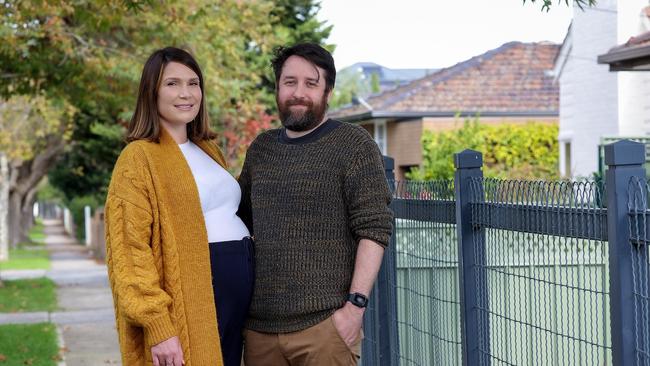
Property
Don't miss out on the headlines from Property. Followed categories will be added to My News.
Melbourne’s inner-north and northeast suburbs are primed for massive boosts in their median home prices, while areas like Toorak and Middle Park could plunge by 2028, new data modelling predicts.
Exclusive data from PropTrack that applies the growth in a suburb’s median home price from the past five years to what it could be in 2028 shows suburbs like Eaglemont, Northcote and Fitzroy set to soar up to 60 per cent.
This comes despite Melbourne’s home prices falling 5.3 per cent in the past 12 months, according to the latest PropTrack Home Price Index.
RELATED: 108 Vic suburbs where rents have dropped
Don’t buy here: Victoria’s property ‘no go zones’
More Aussies to get home buying help
Leafy northeast suburb Eaglemont could see its median home price rise 60 per cent in the next five years, from $2.248m to $3.607m.
Miles Real Estate Ivanhoe and Rosanna director Brad Pearce said homes in the suburb were tightly-held and its historic wealth connotation meant Eaglemont would always be a popular place to live.
“It’s a family marketplace where people move from a really broad range like Clifton Hill to Preston to Eltham and the Diamond Valley,” Mr Pearce said.
“It’s the upper echelon of the northern real estate market, that’s for sure.”
NOTE: Median dwelling price is calcuated by the combination of houses and units.
Median home prices Northcote and Fitzroy North are forecast to grow from $1.235m and $1.231m to $1.792m and $1783m, respectively — both a 45 per cent jump for the inner north suburbs.
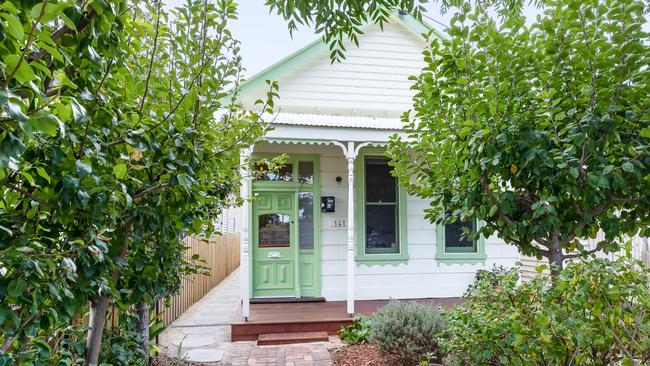
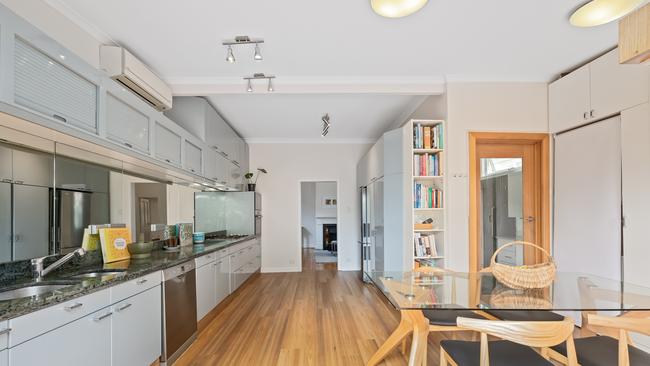
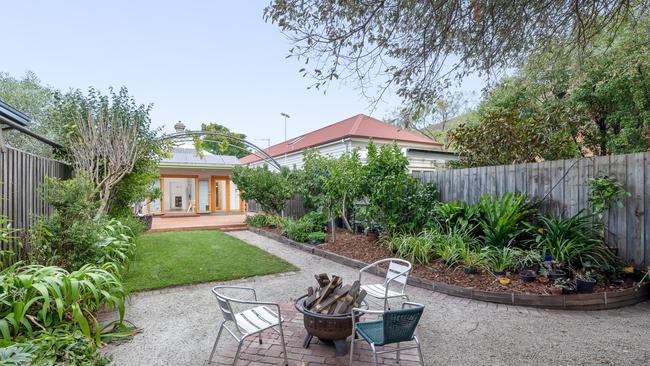
Jellis Craig Northcote director Richard Rose said while it was “hard to fathom” such significant price increases, the suburbs both had strong buyer demand.
“Buyers are really wanting to buy in our sort of little sphere of influence around that Northcote, Fitzroy area,” Mr Rose said.
“There’s a lot of buyers that simply don’t want to be living out of the Melbourne fringes, so they’re looking to compromise and go to apartments and townhouses.
“I’m seeing more families purchasing apartments where I wasn’t seeing that before.”
Alex Luke, 36, bought a townhouse with her partner, Tom Doman, 37, in Northcote in 2022, both as first home buyers.
Ms Luke said it was “always one of those suburbs on the shortlist and within budget”.
“We bought a townhouse, and we weren’t even considering a townhouse,” Ms Luke said.
“But it was a new build and the features were amazing, three bedrooms, a double garage … it completely won us over.”
Ms Luke said the location was also “such a winner” as a very leafy suburb with lots of parks.
“We are just about to have our first baby, and there’s lots of support for parents in this community,” Ms Luke said.
“We think this will always be a good property to have.”
While median prices in some of Melbourne’s premium suburbs were predicted to fall by 2028, PropTrack senior economist Paul Ryan said it wasn’t a sign of sliding property values.
The modelling showed Toorak’s $1.83m median home price is projected to drop 24 per cent by 2028 to $1.395m.
Similarly, Princes Hill and Middle Park are forecast to slip from $1.24m and $1.915m to
$969,000 and $1.534m, respectively.
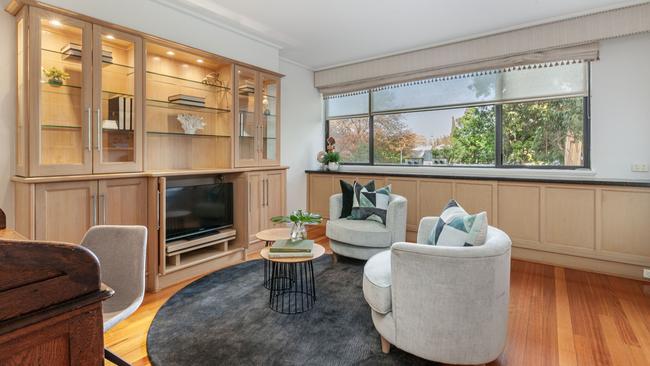
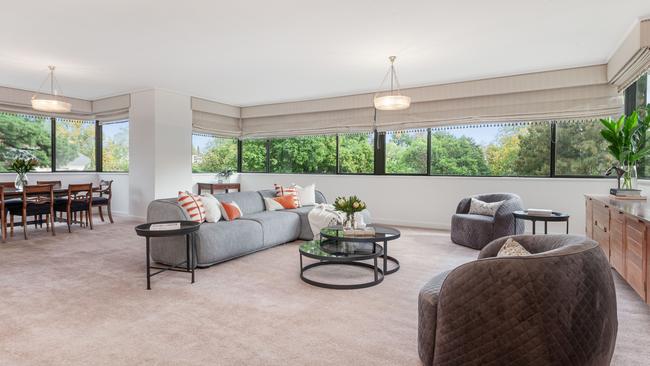
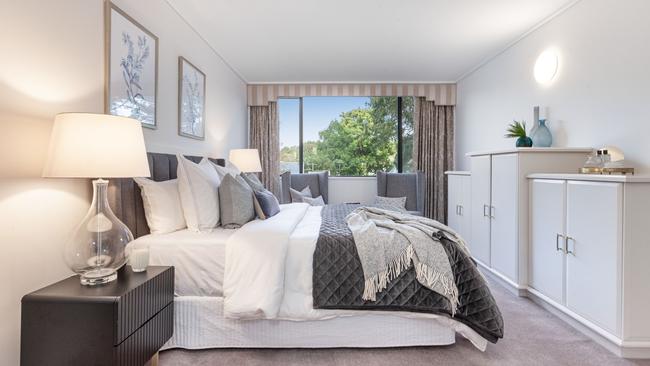
Mr Ryan said the increase in high-density development was rapidly changing the landscapes in some of the city’s premium suburbs, impacting the median home price figures.
“You think of Toorak, it’s huge blocks and huge stately residences. It’s difficult to build the kind of homes that those suburbs are known for,” Mr Ryan said.
“Rather than those suburbs being any less desirable, it’s more that they’re becoming a little more accessible.
“This is how the city has to evolve when building more housing, and the easiest way to
do that is with higher density and that means smaller homes and smaller homes
are cheaper.”
The areas that made high-density development “more difficult” would see big
increases in home prices, according to the PropTrack senior economist.
“Supply will remain constrained in these locations compared with other locations where they are accepting new developments.” Mr Ryan said.
Ray White Cranbourne and Cheltenham chief executive Mark Guthrie said areas like Clyde and Clyde North had become more affordable than neighbouring suburbs, especially for migrants coming into the state, but would see rapid growth in the coming years.
“The government has committed plenty of funds to schools, roads and services … which will only increase the appeal of the area,” Mr Guthrie said.
Clyde and Clyde North’s median home prices are predicted to rise from $700,000 and $732,000 to $1.114m and $1.072m.
Sign up to the Herald Sun Weekly Real Estate Update. Click here to get the latest Victorian property market news delivered direct to your inbox.
MORE: Catch co-founder’s Brighton property may fetch $10m


